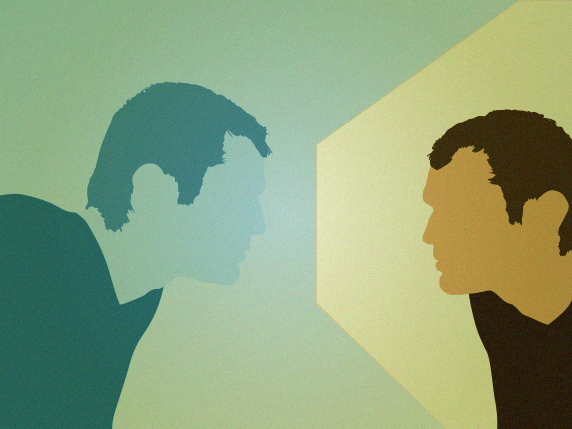This quote, which I borrowed from this article, is a good descriptor of humanity in some respects. The article is about “talent management,” i.e. recruiting and sourcing and HR stuff. Paradoxically, those types of things are massively important to people because the job you have often determines other aspects of your life. But no one really cares about it until they need to (i.e. they just got fired), or until it becomes a money issue (i.e. executives who are spending too much money because of turnover). It’s amazing how little we care about the process of getting jobs when you consider how important it is to have jobs. Anyway, I digress.
At the individual level…
… this quote would be about a lack of self-awareness, which is fairly common in many human beings. In fact, per psychological research, usually idiots think they’re geniuses. People get confused by that, but … it makes perfect sense. An actual genius and/or a person with self-awareness is never satisfied and wants to get better consistently. An idiot achieves one basic thing, i.e. exiting a bathroom without toilet paper attached to their shoe, and thinks they have conquered the world. In reality, workplaces have many more idiots than geniuses. That’s also logical. The way we set up work doesn’t make really smart people want to stay. It makes them want to go do their own thing.
At the organizational level…
Let me quote the article above to illustrate the problem:
The problem is that even when organizations evaluate the candidate correctly, they are often not as good at evaluating the role, and particularly their own culture. This is why so many organizations see themselves as more inclusive, diverse, innovative, and prosocial than they actually are — it’s wishful thinking rather than accurate self-assessment. This obviously impacts a candidates’ perceptions of the role and organization, where it may take them a while to truly experience the culture and understand what the role truly entails and demands from them.
Bingo bango. Most guys running point at companies think they are inclusive, and diverse, and have A-Players, and have innovative hubs, and are disruptive, and all this bullshit. Oftentimes none of it is remotely true. There’s not organizational self-awareness because, well, the focus needs to be on the shiny objects and biz dev/lead gen opportunities immediately in front of the person. No one cares about bigger issues in most organizations. It’s all about immediate issues. As a result, self-awareness drowns in the flood. “We’re innovative! We’re prosocial!” In reality your managers are more akin to slave drivers than leaders, but eh, last quarter looked good.
Could we scale self-awareness?
We can, but paradoxically usually something awful has to happen for self-awareness to scale. Like, personally, I got divorced in 2017. I knew my relationship had issues before I got divorced, and I knew what aspects of them were my fault. I did not really change a lot of those. When something more drastic happened, I had to try and change some. I am still not perfect there, and that is a flaw I’m still working through, but yes … self-awareness often comes from reversal. When companies or individuals go bankrupt or people get fired or companies get sold for parts, the “leaders” tend to think about their next ventures in different terms.
There is an argument to be made that “The Temple Of Busy” prevents self-awareness from reaching scale because everyone feels so “slammed” all the time. It’s hard to really think about what’s good/bad/wrong/indifferent about your life when you are constantly go-go-go on deliverables, appointments, and errands.
What’s the role of social media here?
Generally not great. Most social media is not real. It’s largely curated. Not everyone realizes that. The confusion over “This is real!” on social reduces general self-awareness, and increases depression. The problem is, only academics discuss this stuff. People that love Instagram and guys who run businesses don’t want to listen to academics. As a result, the cycle persists, self-awareness generally declines, and that makes it harder for real stuff to get done in our day-to-day personal and professional lives.
What’s your take on all this?

Interestingly, I canned my FB account to improve my self awareness 🙂